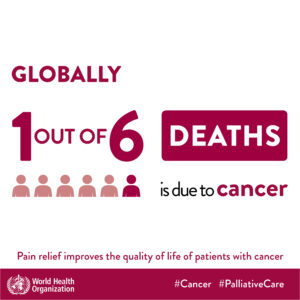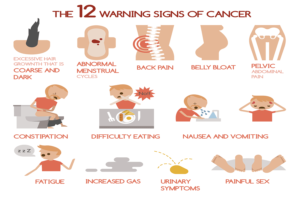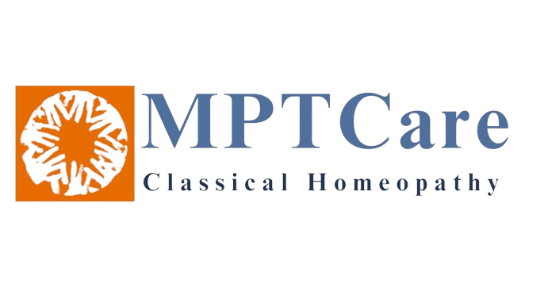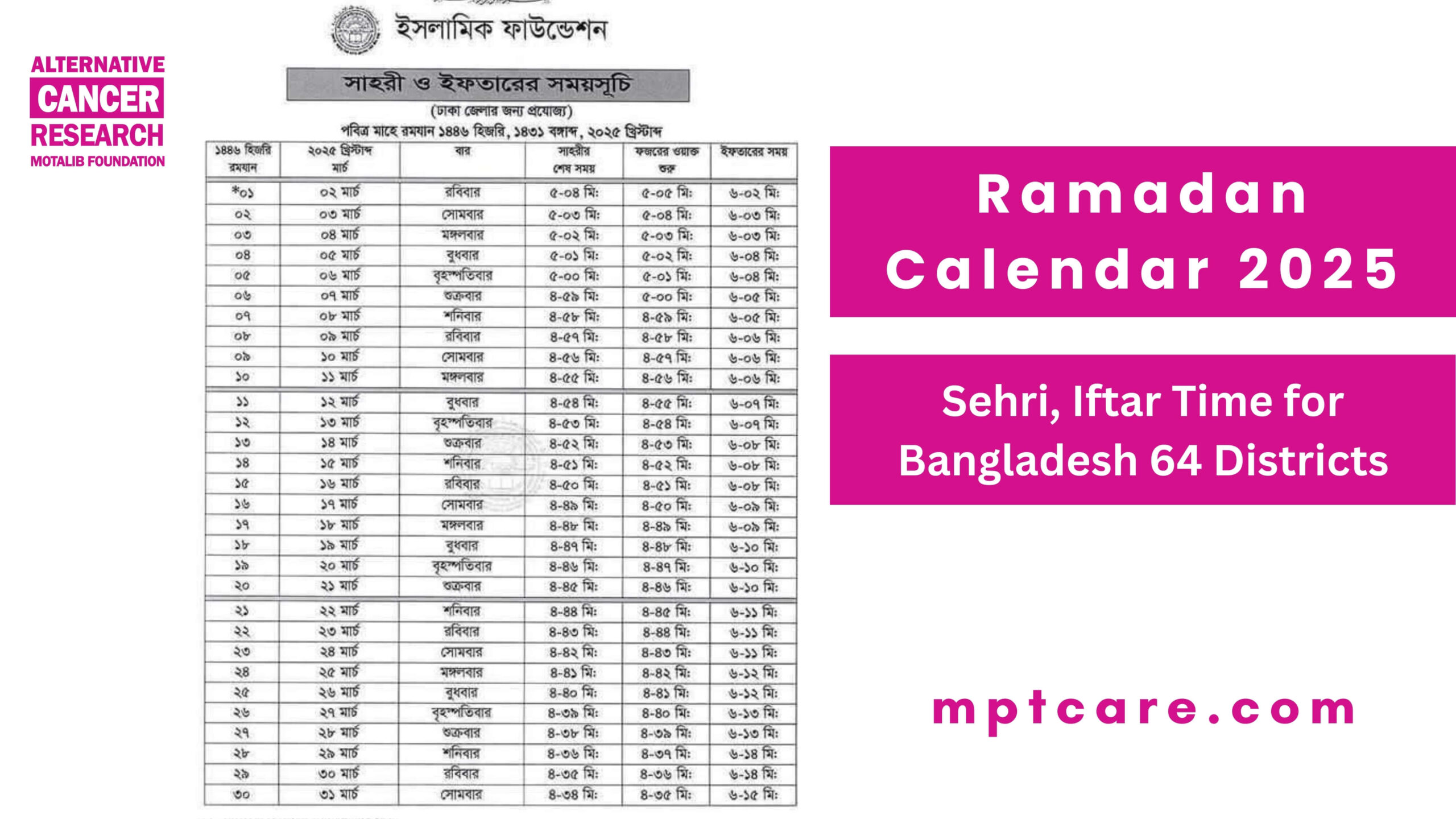
MPTCare Homeopathy Cancer Treatment: Can It Be a Viable Option?
Cancer is a devastating disease that has touched the lives of millions around the world. While traditional treatments like chemotherapy, radiation, and surgery are widely used, an increasing number of patients are exploring alternative therapies to complement or replace conventional approaches. Among these, homeopathy cancer treatment has been gaining traction for its holistic and individualized approach.
Homeopathy is a branch of alternative medicine founded on the principles of treating diseases with highly diluted substances. Advocates of homeopathy believe that it can help manage cancer symptoms, improve quality of life, and, in some cases, potentially arrest the growth of cancerous cells. This post will explore the possibilities of homeopathy in treating different types of cancer, providing insights into its applications and limitations.
Understanding Cancer and Its Nature
Cancer occurs when the body’s cells grow uncontrollably, forming tumors or spreading throughout the body. It is typically classified into two main types:
- Carcinoma – Tumors originating from epithelial cells (skin or the lining of internal organs).
- Sarcoma – Tumors originating from connective tissues like bone, cartilage, or muscle.
The symptoms are varied but can include abnormal tissue growth, pain in specific areas, unexplained weight loss, fatigue, intense night sweats, and abnormal bleeding. Traditional treatments aim to remove, eradicate, or suppress these cancerous cells, but they often come at the cost of severe side effects.
Homeopathy takes a different perspective. It seeks to understand and treat the root cause of the disorder, which practitioners believe stems from “miasms”—imbalances of mental, emotional, and physical factors—that lead to disease.
Benefits of Homeopathy for Cancer Patients
Homeopathy is not considered a cure for cancer in advanced stages but may offer several benefits for cancer patients:
- Relief from Symptoms – Alleviating pain, nausea, and fatigue often experienced during cancer.
- Improved Quality of Life – Enhancing energy levels, mood, and better overall function.
- Support During Chemotherapy & Radiation – Reducing the side effects of conventional therapies, such as hair loss, dry skin, and loss of appetite.
- Personalized Treatment – Each remedy is tailored to the unique symptoms and conditions of the patient.
- Safe and Gentle – With minimal or no side effects, homeopathy provides a non-invasive option.
It is crucial to note that homeopathy’s success largely depends on factors like the type of cancer, the stage of diagnosis, and whether it complements or replaces conventional treatments.

Homeopathy’s Approach to Different Cancer Types
1. Breast Cancer Treatment
Breast cancer is one of the most common cancers affecting women. Homeopathy aims to reduce painful lumps, alleviate discomfort during menstruation, and manage feelings of anxiety and depression. Remedies like Conium, Phytolacca, and Calcarea fluorica are commonly used to address symptoms.
2. Colon Cancer Treatment
Colon cancer involves abnormal growths in the large intestine. Homeopathy seeks to address symptoms like abdominal pain, blood in stools, and irregular bowel habits. Remedies like Arsenicum Album and Nux Vomica are often administered.
3. Lung Cancer Treatment
Homeopathic remedies like Carbo Vegetabilis and Antimonium Tartaricum are used to manage shortness of breath, coughing, and bleeding for patients battling lung cancer.
4. Blood Cancer Treatment (Leukemia)
Blood cancers stem from abnormal growth of blood and bone marrow cells. Remedies such as Arsenicum Album are administered for fatigue and recurring infections to strengthen vitality.
5. Cervical Cancer Treatment
Common in women, cervical cancer affects the lower part of the uterus. Remedies like Thuja Occidentalis are popular for addressing vaginal discharge, irregular menstrual cycles, and pelvic pain.
6. Prostate Cancer Treatment
For men experiencing prostate cancer symptoms such as difficulty urinating or pelvic pain, homeopaths often recommend remedies like Sabal Serrulata.
7. Liver Cancer Treatment
Homeopathy addresses liver cancer symptoms such as swelling, abdominal pain, and loss of appetite. Remedies like Chelidonium Majus are traditionally used.
8. Skin Cancer Treatment
For cancers of the skin caused by factors like UV exposure, remedies like Sulphur and Cundurango focus on managing sores, itching, and other skin issues.
9. Stomach Cancer Treatment
Homeopathy emphasizes easing pain, nausea, and vomiting, using remedies like Hydrastis Canadensis and Phosphorus.
10. Pancreatic Cancer Treatment
Homeopathic remedies such as Iris Versicolor help manage abdominal pain and digestive problems.
11. Nose Cancer Treatment
Nose cancer affects the nasal cavity and sinuses. Remedies like Kali Bichromicum are popular for managing nasal ulcers, congestion, and headaches.
12. Urethral Cancer Treatment
Homeopathy offers options for urethral cancers, with remedies targeting urinary tract symptoms such as discomfort and bleeding.
Are There Scientific Studies Backing Homeopathy for Cancer?
While anecdotal evidence and patient testimonials support homeopathy, its credibility in cancer treatment remains a topic of debate in conventional medicine. Researchers often criticize the lack of large-scale scientific studies with consistent results. However, isolated case studies show promise.

For example, in the “Homeo Cancer Bulletin,” Dr. Nayamot Ullah Sir (BHMS) presented cases where homeopathic protocols demonstrated improvement in symptoms and quality of life. This includes successful management of early-stage cancers, where patients avoided aggressive treatments like chemotherapy or surgery.
Cancer Treatment Protocols in Homeopathy
Homeopathic practitioners tailor treatments based on the individual constitution of the patient. Common practices include:
- Remedy Selection: Administering remedies such as Carcinocin, Sulphur, and Conium based on symptoms.
- Lifestyle Adjustments: Encouraging the patient to avoid exposure to carcinogens and maintain a balanced diet with cancer-preventing foods, such as cabbage, cauliflower, and carrots.
- Palliative Support: For advanced cancer stages, homeopathy focuses on symptom relief and improving mental well-being.
Can Homeopathy Coexist with Conventional Medicine?
Many patients use homeopathy alongside traditional treatments to minimize the side effects of chemotherapy and radiation while improving overall well-being. Communication between oncologists and homeopaths is essential to ensure safe and effective complementary care.
Final Thoughts on Homeopathy Cancer Treatment
Homeopathy offers a promising yet debated approach to cancer management, focusing on holistic principles, individualized treatment, and gentler remedies. However, it is not a standalone cure for advanced-stage cancers. Patients considering homeopathy should consult qualified practitioners and remain informed about all available treatments.
Curious about how homeopathy could fit into your cancer care? Talk to an experienced homeopathic specialist to explore personalized treatment protocols.
What to Consider Before Starting Homeopathic Cancer Treatment
Before beginning homeopathic cancer treatment, it is crucial for patients to thoroughly assess their options and consult with healthcare professionals. Here are key considerations:
- Consultation with a Qualified Practitioner: Ensure that your homeopathic specialist is well-trained and licensed. They should have experience in treating cancer patients and understanding the complexities of the disease.
- Complementarity, Not Replacement: Homeopathy is considered a complementary therapy and should not substitute conventional treatments like surgery, chemotherapy, or radiation for advanced cancers. Discuss all options with your oncologist to create a balanced treatment plan.
- Potential Interactions: While homeopathic remedies are generally safe, patients must disclose all ongoing treatments and medications to avoid any adverse interactions.
- Setting Realistic Expectations: Homeopathy focuses on symptom management, quality of life improvements, and holistic well-being. It is not a guaranteed cure but a supportive therapy that aims to enhance the overall condition of the patient.
- Monitoring and Follow-Up: Regular health check-ups and diagnostic tests are essential to track the progress of the disease and the efficacy of the treatment. Maintain open communication with all healthcare providers involved in your care.
By carefully evaluating the suitability of homeopathic approaches and integrating them thoughtfully with conventional practices, patients can make informed decisions that cater to their unique circumstances.
Success Stories in Homeopathic Cancer Treatment
There are numerous anecdotal success stories from patients who have used homeopathy to complement their cancer treatment. Many of these cases highlight improvements in quality of life, symptom relief, and mental well-being. For instance:
- Improved Symptom Management: Patients undergoing chemotherapy have reported reduced side effects such as nausea, fatigue, and hair loss when using remedies like Nux Vomica or Cadmium Sulphuratum alongside conventional care. These remedies focus on easing gastrointestinal distress and detoxifying the body.
- Holistic Healing: Some individuals with early-stage cancers have experienced positive results by combining general homeopathic remedies like Thuja or Carcinocin with lifestyle adjustments. These treatments aim to strengthen the immune system and promote overall vitality.
- Mental and Emotional Support: Homeopathy also provides emotional relief for patients dealing with anxiety, fear, or depression related to their diagnosis. Remedies like Ignatia Amara and Aurum Metallicum are often used to help patients achieve mental clarity and resilience through the treatment process.
Although these stories are not a substitute for clinical evidence, they emphasize homeopathy’s value as a complementary therapy in providing comfort and a sense of control for patients during their cancer treatment.





Challenges and Criticism of Homeopathy for Cancer
Despite the reported benefits, homeopathy for cancer treatment faces several challenges and criticisms. The most significant issue is the lack of large-scale, double-blind, randomized clinical trials to establish its efficacy definitively. Critics argue that positive results could be attributed to the placebo effect rather than the remedies themselves.
Another challenge is the variability in the qualifications and expertise of homeopathic practitioners. Misinformed or unqualified practitioners may recommend remedies inappropriately, leading to delayed conventional treatment or false hopes. Furthermore, homeopathy may not be suitable for all cancer types or advanced stages, where aggressive treatment is critical for survival.
Collaborative care models that incorporate homeopathy within a well-structured conventional medical framework are necessary to address these challenges. Greater research efforts and standardization within the field of homeopathy could bridge the gap between skepticism and acceptance, allowing patients to safely explore all their options.

The Future of Homeopathy in Cancer Care
The role of homeopathy in cancer care continues to evolve as more patients seek holistic and integrative treatment options. Advances in research, increased awareness, and improved collaboration between conventional and alternative medicine practitioners could expand the potential applications of homeopathy in the future. With ongoing efforts to conduct scientific studies and document outcomes rigorously, the field has an opportunity to address skepticism and solidify its place as a viable complementary therapy.
Furthermore, technological innovations and modern data analysis tools could contribute to more precise and individualized homeopathic treatment plans. For example, integrating patient health data with advanced homeopathic knowledge could help practitioners identify the most effective remedies for specific cancer symptoms or individual constitutions.
While challenges remain, the growing demand for patient-centered care suggests that homeopathy could play an increasingly significant role in cancer management, especially when used responsibly alongside conventional treatments. The future of homeopathic cancer care lies in its ability to adapt, innovate, and collaborate, ultimately empowering patients to explore comprehensive approaches to their health and well-being.

Personalized Approaches in Homeopathic Cancer Care
One of the key strengths of homeopathy lies in its highly personalized approach to treatment. Unlike conventional treatments that often follow standardized protocols, homeopathic care takes into account the unique physical, emotional, and psychological characteristics of each patient. Practitioners spend significant time understanding a patient’s complete medical history, lifestyle, and personal experiences to select remedies tailored to their individual needs.
This personalization allows homeopathy to address not just physical symptoms but also the emotional and mental states that often accompany cancer. For instance, remedies may be chosen to alleviate feelings of fatigue coupled with hopelessness or to manage pain that worsens with specific triggers like stress or weather changes. This level of detail ensures that the treatment aligns closely with the patient’s holistic experience and promotes better overall well-being.
Additionally, personalized care fosters a strong sense of collaboration between patients and practitioners. By engaging patients in the decision-making process and tailoring remedies to their feedback, homeopathy encourages active participation in one’s own healing process. This empowerment can play a critical role in sustaining hope and resilience during the challenging cancer treatment journey, enhancing the patient’s quality of life in meaningful ways.






















 Volunteer Help poor patients get cancer treatment and lead drug-free lives.
Volunteer Help poor patients get cancer treatment and lead drug-free lives.





